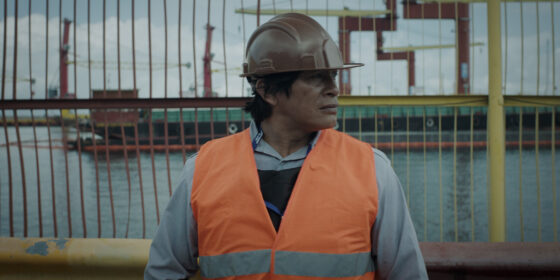The Fever (Maya Da-Rin, Brazil/France/Germany) — Wavelengths

By Beatrice Loayza
In Brazilian documentarian Maya Da-Rin’s first feature film, an indigenous man, Justino (Regis Myrupu, weathered but warm) must reckon with his daughter’s impending departure to med school. A recent widower, Justino works as a cargo port watchman while his daughter, Vanessa (Rosa Peixoto), juggles several jobs at local clinics. Their lives are modest and uneventful, a circular flow from work to their home on the outskirts of Manaus, which Da-Rin shoots in low light and fills with the sounds of the jungle and the hypnotic hum of machinery. When Vanessa receives news of her acceptance and scholarship, her father’s weak handle on the demands of urban living causes her to guiltily deliberate her choice, especially as Justino’s emotional aching becomes manifest in the form of mysterious, intermittent fevers and rumours of supernatural entities in the neighbourhood.
Da-Rin’s father-and-daughter pair might on first glance seem too precious, too good for this world in their genuine concern for one another, and yet The Fever’s emotional beats never feel contrived. Instead, Da-Rin creates tension not as a simplistic pitting of the old against the new, so to speak, but as a constant generational negotiation and series of concessions motivated by familial love. The Fever is essential cinema, demanding empathy and understanding without pity or didacticism, and spotlighting indigenous people with the attention to cultural specifics that few films bother elaborating. And here, indigenous folks speak (in Portuguese, and in their native language) for once not solely about the white man or their employers, but about the most perfectly normal, sometimes refreshingly banal details of their daily lives, their fears, their longings in a time of rapid industrialization.
Beatrice Loayza

